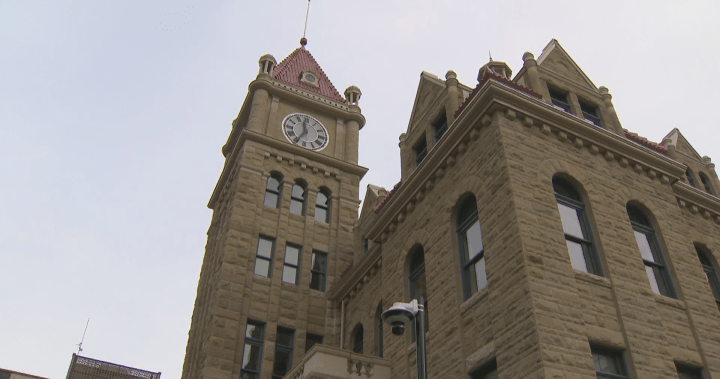Summarize this content to 2000 words in 6 paragraphs
After five days of public feedback and deliberations, Calgary city council has approved its adjustments to next year’s budget with a tax increase and new spending from reserves.
Council stuck with an overall property tax increase of 3.6 per cent, which was previously approved in during budget deliberations in 2022.The move means the owner of a typical residential home assessed at $700,000 will see an extra $13.46 on their monthly property tax bills.That’s because the budget also includes an increase to service and utility fees that works out to $5.09 per month based on typical usage.The amount Calgarians will pay in property taxes will vary by property type, with owners of condominiums assessed at $360,000 facing the steepest hike at 10.5 per cent for a total of $1,370 per year. “This budget represents a clear commitment to the people of Calgary,” Mayor Jyoti Gondek told reporters. “It wasn’t easy, but we made thoughtful, strategic choices to balance affordability with delivering the services Calgarians value most.”With dozens of amendments debated over two days, council approved one-time funding from reserves to cover a lengthy list of priorities without impacting the property tax increase.Reserve funding will cover a new firearms training facility for the Calgary Police Service, a $20-million boost for potholes and pavement repair, $15 million over two years for unfunded repairs at city-owned recreation facilities, and another $2.5 million for upgrades at playgrounds.
More on Calgary
More videos
The budget’s approval also means funds to cover a $33-million revenue shortfall for Calgary Transit, as well as one-time money for the low-income transit pass program for another year. Gondek will also write a letter to the Government of Alberta to advocate for full funding for that program to be covered by the provincial government.
Get daily National news
Get the day’s top news, political, economic, and current affairs headlines, delivered to your inbox once a day.
Council also gave the city authorization to borrow over $1 billion to cover a variety of water infrastructure projects including planning for a new water treatment plant, upgrades to wastewater facilities and feedermains.New community growth will also see dollars in next year’s budget, aimed at initiating development of around 18,000 homes on the city’s outskirts.“We had some very difficult and fiery discussions, and we made tough choices, choices that will help the city meet today’s needs while planning for Calgary’s future,” the mayor said. Ultimately, city council voted 9-6 in favour of the budget, with Couns. Sonya Sharp, Dan McLean, Jennifer Wyness, Andre Chabot, Terry Wong and Sean Chu voting in opposition.“I voted against it because it included a tax increase,” McLean told reporters. “There’s some good things and some bad things, but at the end of the day I had to vote no.”Chabot said he felt administration did a “good job” of keeping the property tax increase below the rate of inflation and population growth, but felt more could’ve been done to offset a tax shift from non-residential to residential properties.“I tried on several occasions to shift that budget back, or at least minimize the impact from one ratepayer to another,” Chabot said.There were dozens of amendments from five city councillors aimed at cutting spending throughout the debate, but each attempt was defeated.“There is room for efficiencies in this corporation,” Sharp said. “Nobody wants to look for them because it’s not easy.”On the other end, Ward 12 Coun. Evan Spencer pitched close to $480 million in new spending over the next three years in a moreso symbolic amendment that was defeated in a 12-3 vote.Spencer warned of the growing funding gap and the added pressures on city infrastructure with a population that’s rapidly growing. “Lots of us talk about local decision making and taking care of Calgary and its infrastructure,” Spencer said in his debate. “We talk about it, it’s the basics, but we actually have to fund it.”In its last decision late Friday, city council voted to reverse its decision fast track the closure of the Inglewood Pool at the end of this year.Council found close to $400,000 to keep the doors open through 2026 after facing significant pushback and advocacy from the community.“We’ll cross that bridge when we get to it. If we get more density, maybe it’ll be a different conversation,” Inglewood resident Fiona McKenzie told reporters. “I think, for now, we’re taking the win.”
© 2024 Global News, a division of Corus Entertainment Inc.













